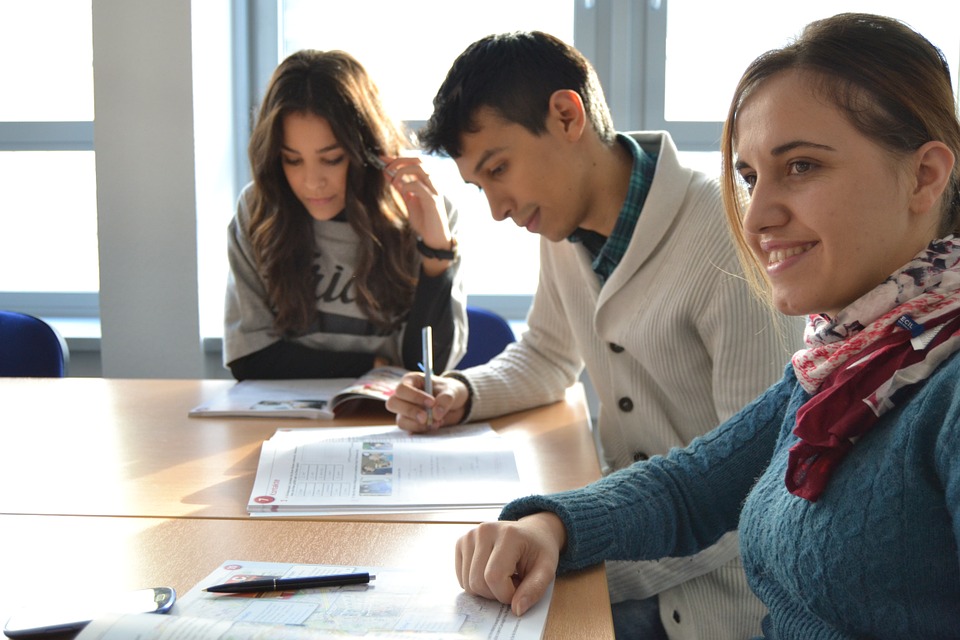 Do you have problems with doing well at school, college or at university? Most likely, you can’t concentrate completely on doing your homework or perhaps can’t find the right attitude to prepare for tests. So if you can’t boast of excellent academic performance, it doesn’t necessarily mean that you are not as smart as other successful students. Maybe the real reason is in the wrong approach to studying.
Do you have problems with doing well at school, college or at university? Most likely, you can’t concentrate completely on doing your homework or perhaps can’t find the right attitude to prepare for tests. So if you can’t boast of excellent academic performance, it doesn’t necessarily mean that you are not as smart as other successful students. Maybe the real reason is in the wrong approach to studying.
But what approach is actually right? Certainly, not the one that includes studying long hours and cramming the whole material in one big chunk of time. To ace your next exams, turn the following 8 recommendations into your regular studying habits.
Organize your days
Sounds boring and in some way impossible for all young students who are used to change their plans in a second. Nonetheless, asks every straight A+ student how he or she manages their studies and you’ll hear some really useful stuff. To start small, carry a planner to school to write down home tasks and deadlines for your upcoming projects, tests etc. If you have everything written down in one place, you won’t forget to complete your assignments on time.
Of course, no one is insured from situations when you accidentally forget to write an essay and the deadline is already closed. The British Essay Writer help can be very effective with academic assignments, but even the most professional writer won’t be able to cope with the task if there are only 2 hours before deadline left.
Be active in class
Try to be 100% involved in class, does not matter if this is a lecture or a seminar. Even during lectures, teachers can see who is an active listener and who is an airy-fairy. Don’t write down every word said by a lecturer – instead, learn how to take effective notes in your own words. This way you’ll remember much more, even without rereading your notes.
Get rid of distractions
Social media, texts, and calls from friends, talkative roommates/classmates, noises at or outside your room – these are all most common distractions of every average high school or college student. Whether you are doing your homework at home or listening to a lecture, make sure you isolate yourself from any of those distractions.
Ask questions
It’s like a snowball: if you don’t understand something from one topic, it will be more difficult for you to understand the other one and so on. To avoid this, ask questions right away. Also, don’t be afraid to talk teachers after class.
Review notes the same day
Attending classes and writing class notes are not enough to assimilate all that great volume of information. Try to review notes the same day as they were made and memorize the most important information out of these notes. By the way, to help you remember notes more effectively, use markers to highlight and underline keywords, dates, names etc.
Create a favorable study area
If your study area is a whole mess, don’t wonder why you are doing badly at studying. So how does a perfect area for studies look like? It’s a quiet spot with a good lighting, a comfortable seat and a workplace to study and write on. Keep it clean and free of unnecessary stuff like food, coffee cups, make-up products, toys etc.
Make breaks
It’s just impossible to stay concentrated for a long period so giving yourself a rest every 30-40 minutes is a good studying strategy, which helps you avoid doing many mistakes. First, since you know there will be a break anyway, you won’t be that tempted to distractions. Second, by doing those breaks, your brain doesn’t get tired that fast.
Practice group studying
If you have good relationships with classmates, why not studying together? Two heads are better than one and when there are several heads, it’s the best. Herewith, studying with someone else gives you a chance to quiz each other on the learned material.
From the first view, it seems to be tough to follow each of these tips at one time. However, it’s just a matter of turning them into a habit. Be patient and you’ll make it to straight A!